Halfway between Bern and Lucerne lies the town of Escholzmatt. Among a dealership for agricultural vehicles, a pharmacy and an old-fashioned butchery, you would not expect a Michelin-starred restaurant.
But there it is: the famous Gasthaus Rössli, run by the infamous Stefan Wiesner. The chef’s reputation precedes him, but his warm welcome makes us forget for a moment that some have called him a wizard.
For an afternoon and an evening, Chef Stefan Wiesner has invited us into his mystical world where art, alchemy, botany, age-old wisdom and pure culinary skills converge. It will turn out to be a time that we will always remember - and treasure.
Hyperlocal Swiss cuisine consisting of all-natural ingredients
Our host kindly offers a welcome drink. Not expecting the chef’s extensive archive of collected leaves, herbs and tree bark (yes, tree bark), I order a plain old cappuccino. Mamiko, however, asks for the chef’s tea suggestion.
Wiesner giggles and disappears into his storage chamber. A few moments later, he returns with a bundle of dried herbs in his hand: "Fireweed tea has many healing powers. And it helps with potency, too."
After introductions, it is time to hop into Wiesner’s Land Rover. During the next few hours, we will be introduced to the UNESCO protected moorlands of the Entlebuch. These unspoiled biosphere reserves essentially act as the chef’s marketplace. This is where he collects most the ingredients for the ever-evolving gourmet meals he has been serving for three decades.
After a brief ride, we park by the wayside at the moorlands – his gathering grounds. Some chefs will probably not find an edible thing around here. But for Wiesner, the moorlands are a positive challenge: how to use all the freely available flowers, seeds, tree bark, mosses or algae in his much-acclaimed kitchen? They are nature’s treasures – but it takes someone like Stefan Wiesner to recognize them.
"The products that grow right here are often just as exotic as those that grow somewhere in the tropics," the chef explains.
“When it comes to their cuisine, the Thai and Scandinavians are honest. They cook their country. And so, I cook Switzerland.” If this sounds too abstract, think hey soup, ravioli of birch leaves, pine sorbet or watercress salad.
Now, most of us are accustomed to tastes that jump out, such as lemon or ginger. Wiesner calls his peculiar tastes "in-betweens". Or using the reference of a piano, he mostly likes to play those black keys. And by doing so, the chef tries to tickle all our senses, including the ultimate one: umami.
Chef Stefan Wiesner knows the essence of each plant by heart
Meanwhile, Wiesner has harnessed his canine friend Levi to a sled which contains tools and containers for the collection. (It is heartwarming how Wiesner makes his dog belief he is pulling the sled, when the owner is doing most of the pulling...)
We carefully tread across the soft organic grounds and stop in front of a birch tree. "Birch trees are disinfectants, and they contain Xylitol, a natural sweetener which we serve at the restaurant," the chef explains.
What fascinates us while listening to Chef Wiesner is that he tends to go into breadth - and depth.
At one point, he "conjugates" a walnut, then a pine cone. Going into breadth, he examines them from a botanical, cultural, historical, mathematical and even philosophical perspective. For instance, I never realized the occurrence of the Fibonacci sequence on a pine cone.
Wiesner also brings up the Celts, a people who lived outdoors on these very lands and who knew how to read nature’s signals. For instance, the thuja evergreen trees symbolized a gate to the underworld. Or the linden tree, which was an important meeting point for the Celts.
Have you ever noticed how many towns still have a large linden tree in the center?
When Wiesner goes into depth, he brings out an entire arsenal of methods for getting to the essence of something like a walnut. Some of the methods are: burning and re-using of the ash, distilling, drying, extracting of oil, fermenting, grinding to make flour, or smoking.
On the topic of trees, Wiesner lets us in on a secret: "Wood contains vanillin, an excellent sweetener for cooking." This little factoid shows that this chef is not just scraping the surface, but that his know-how extends deep into the molecular make-up of the local plant life.
Wiesner knows the essence of each plant, and he knows how to get it out and infuse it into his dishes. During our walk through the moorlands, meadows and forests, we would sample ferns off the forest floor, taste a plant that reminds of wasabi, and nibble on a leaf with the same healing properties as aspirin.
Rock solid nutritional advice
Wiesner is full of catchphrases: "Eating rocks is healthy. They contain lots of minerals." Or: "Eating soil helps to prevent too much acid from building up in our bodies."
Yet there is no single tagline to describe Stefan Wiesner and his unique cuisine. You would have to combine at least the following, if not more: root to leaf, nose to tail and zero waste.
The chef certainly knows what rock tastes like on the palate, because he has served it on his gourmet menu. Thanks to a friendship with Urs Furrer, a Swiss artist known for grinding alpine rocks into dust, Wiesner is able to infuse these rock pigments into some of his dishes.
It is a quirky and playful way of using natural ingredients. And the rock anecdote adds yet another layer to Chef Stefan Wiesner’s portrait. Because serving the essence of the Swiss alps on a platter is borderline genius...
How Wiesner employs storytelling to generate value for local farmers
The more time we spend with Wiesner out in nature, the more it becomes apparent how deeply he cares for his home, the Entlebuch Valley. He did travel the world at one point but ultimately embraces this scenic valley connecting Lucerne and Bern.
One way he gives back is through his ambassadorship for hay milk, a product derived from cows which have exclusively been fed with hay (as opposed to silage food).
By processing this milk into several types of specialty cheese – ten of which were designed by Wiesner, farmers can charge more per liter of milk.
"The Swiss are too humble when it comes to marketing our precious dairy products. I try to employ storytelling to help local farmers enrich their products and make them attractive for worldwide export," the chef explains.
The result of the afternoon’s gathering: a five-course meal served on tree bark and moss patches.
Back at the restaurant, we are able to watch how the chefs carefully sort and process the gatherings:
Since anyone can book the same moorlands hike in companion of Stefan and Levi, I will not be spilling the beans on what the five-course meal included. Except for this: for the first time in my life, I could tell those "in-between" notes. I tasted the essence of nature.
Gasthof Rössli
Hauptstrasse 111
6182 Escholzmatt-Marbach
+41 41 486 12 41
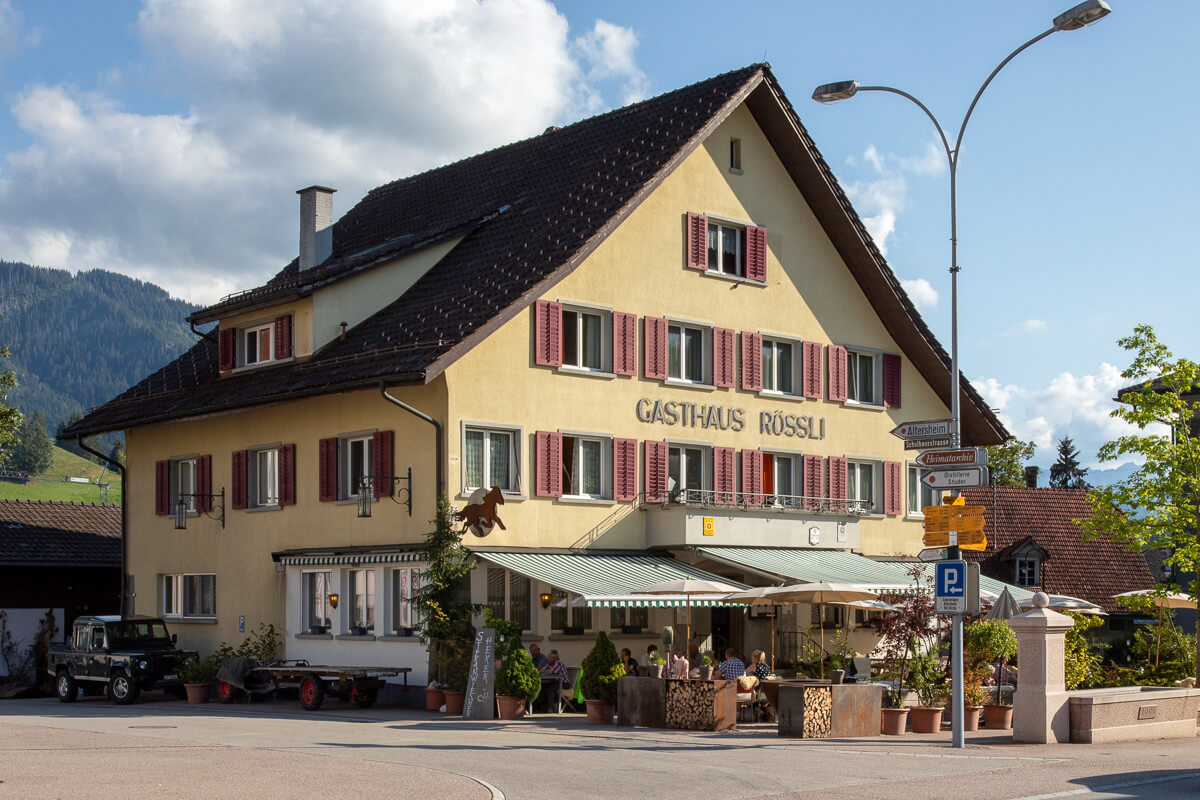

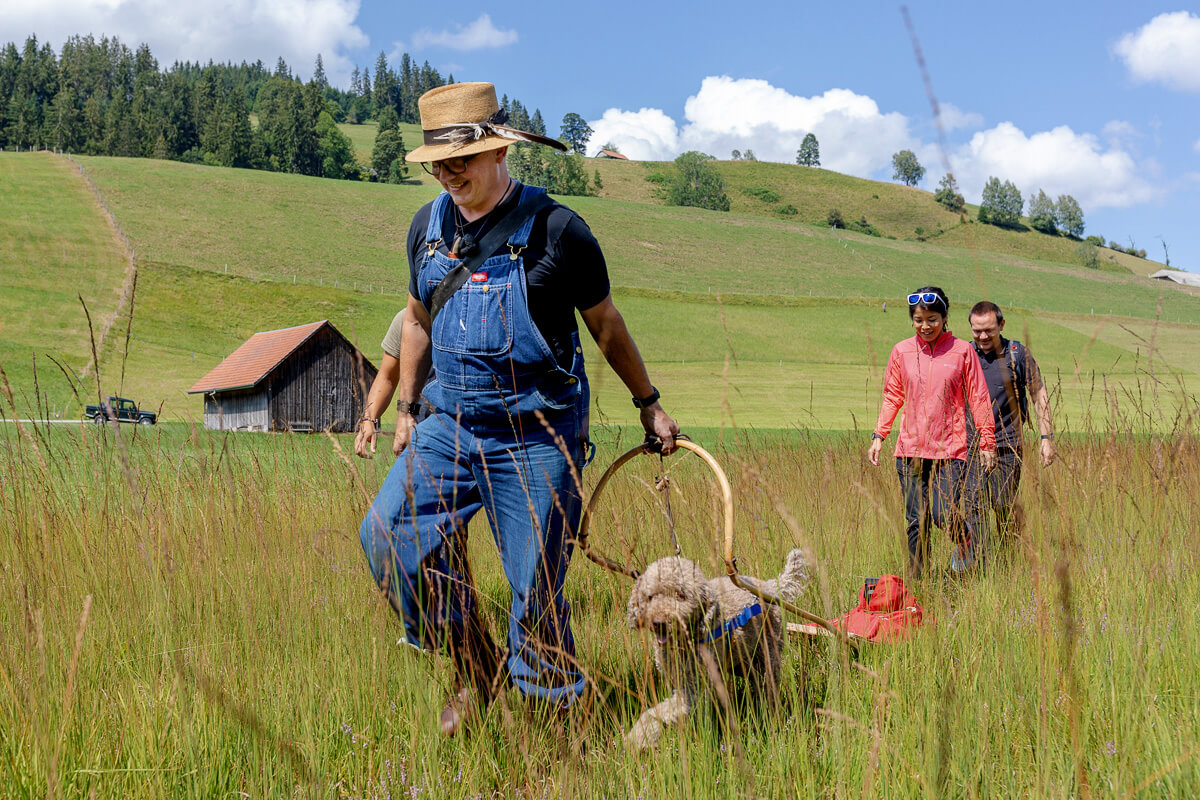
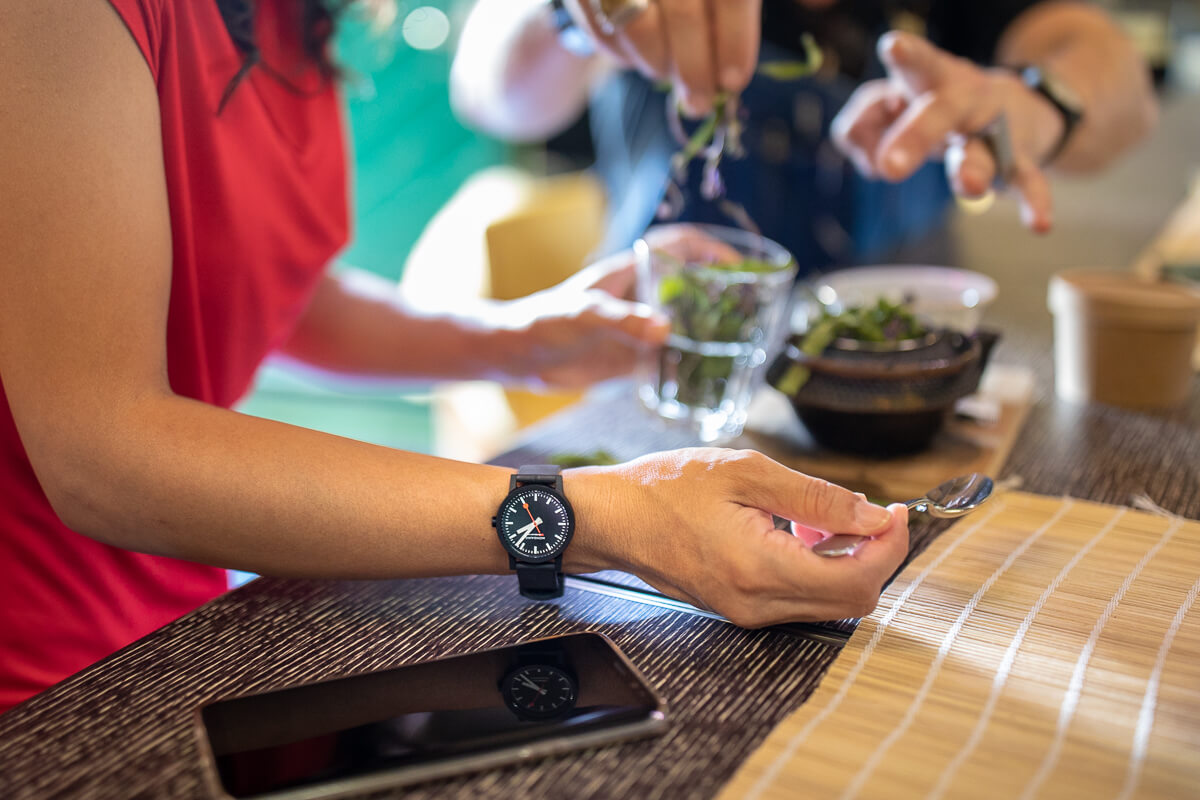
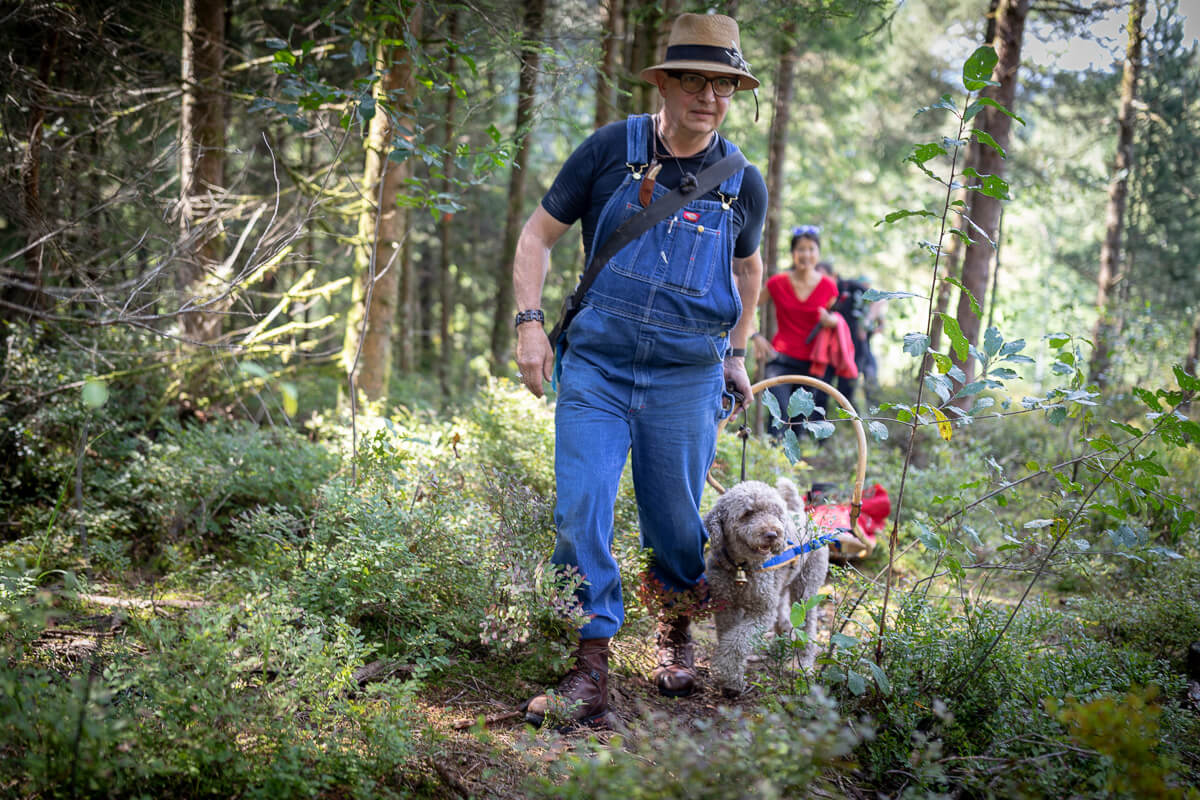
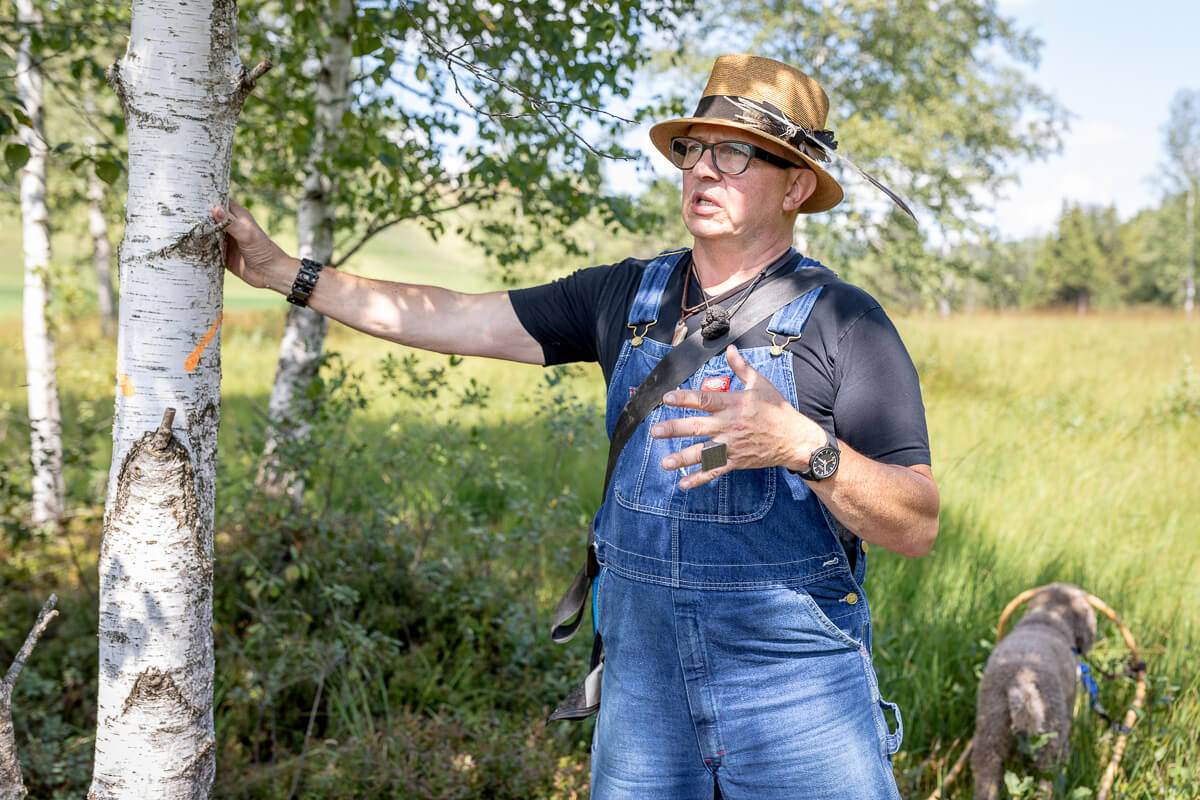
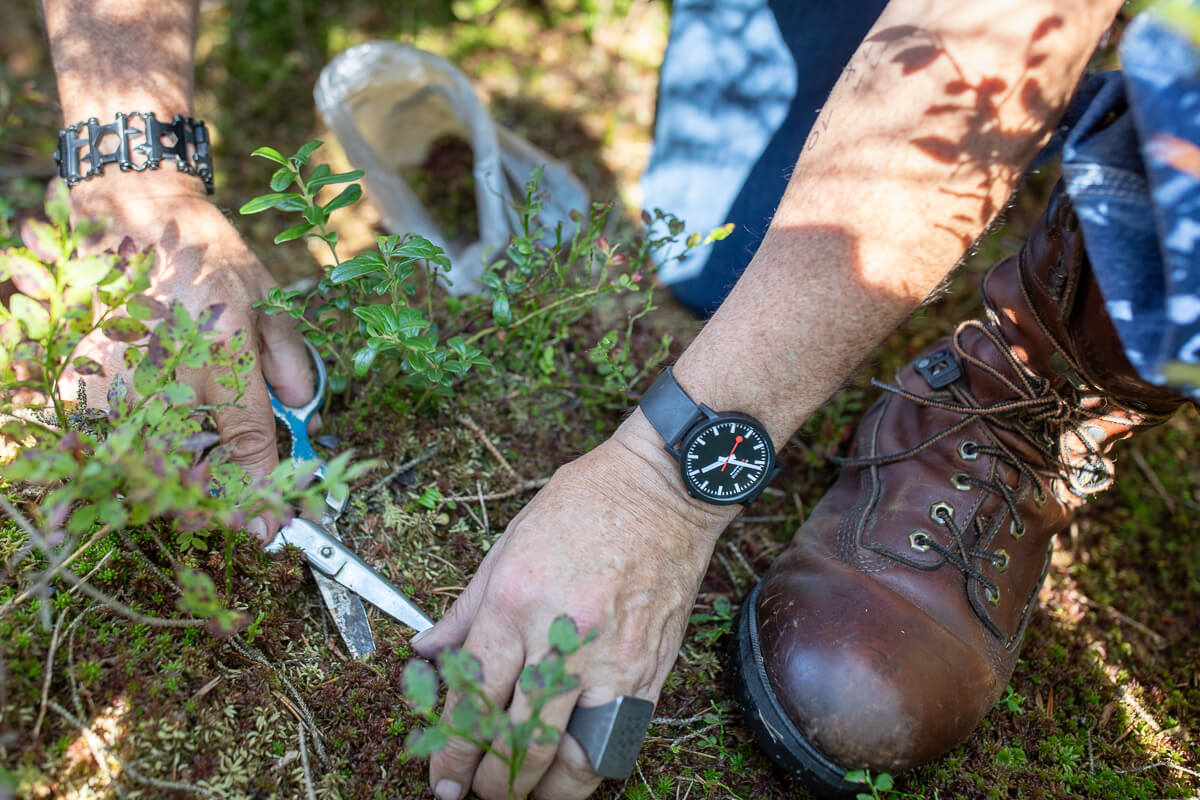
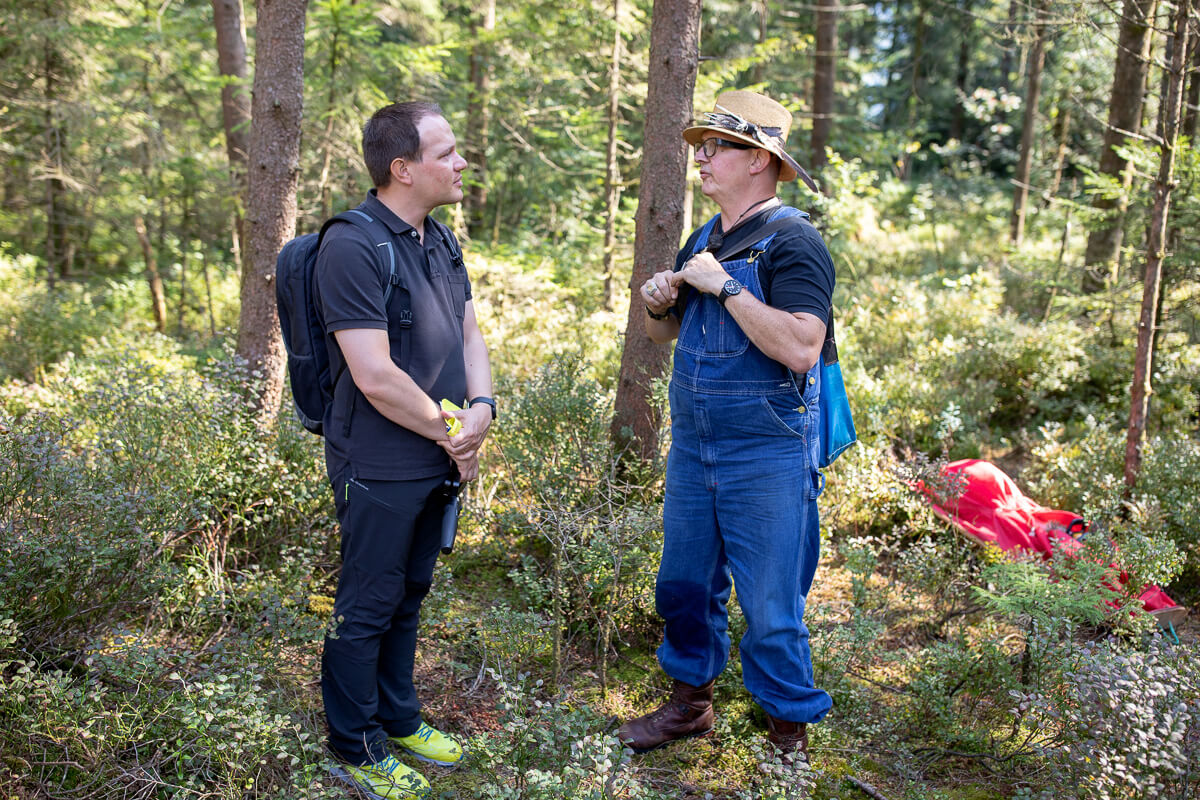
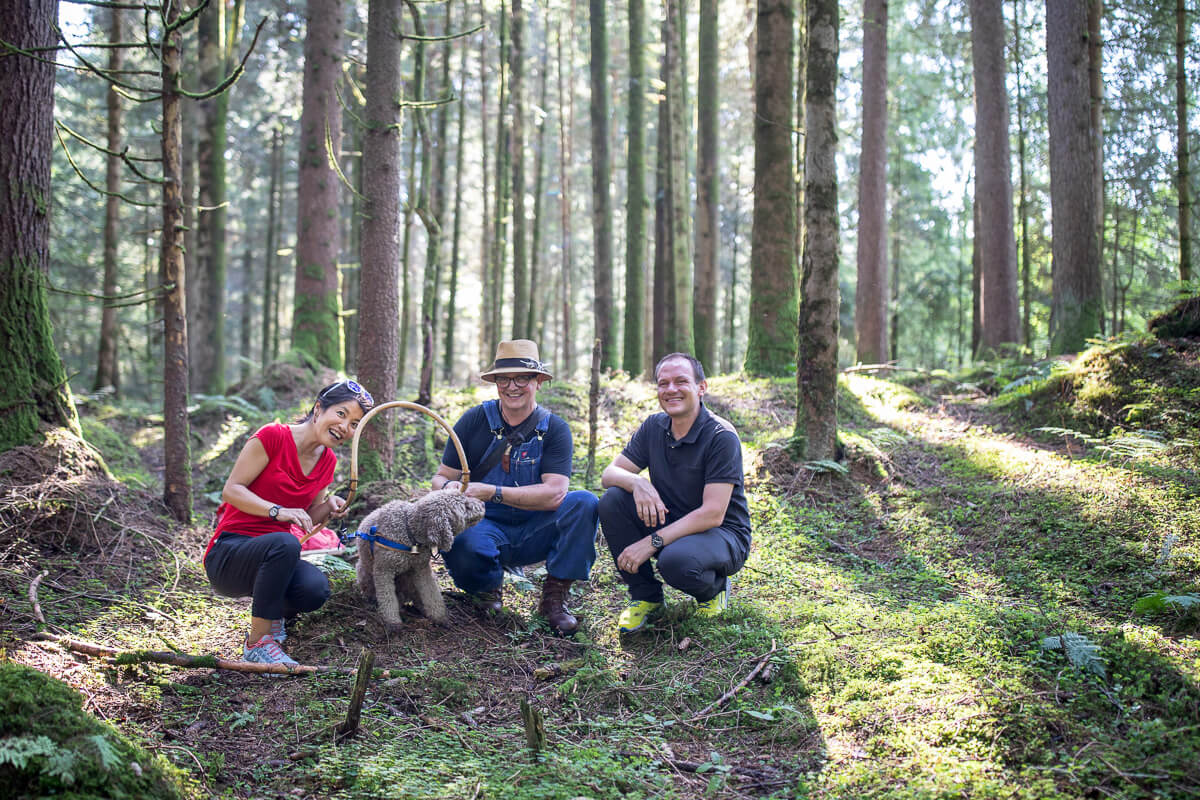
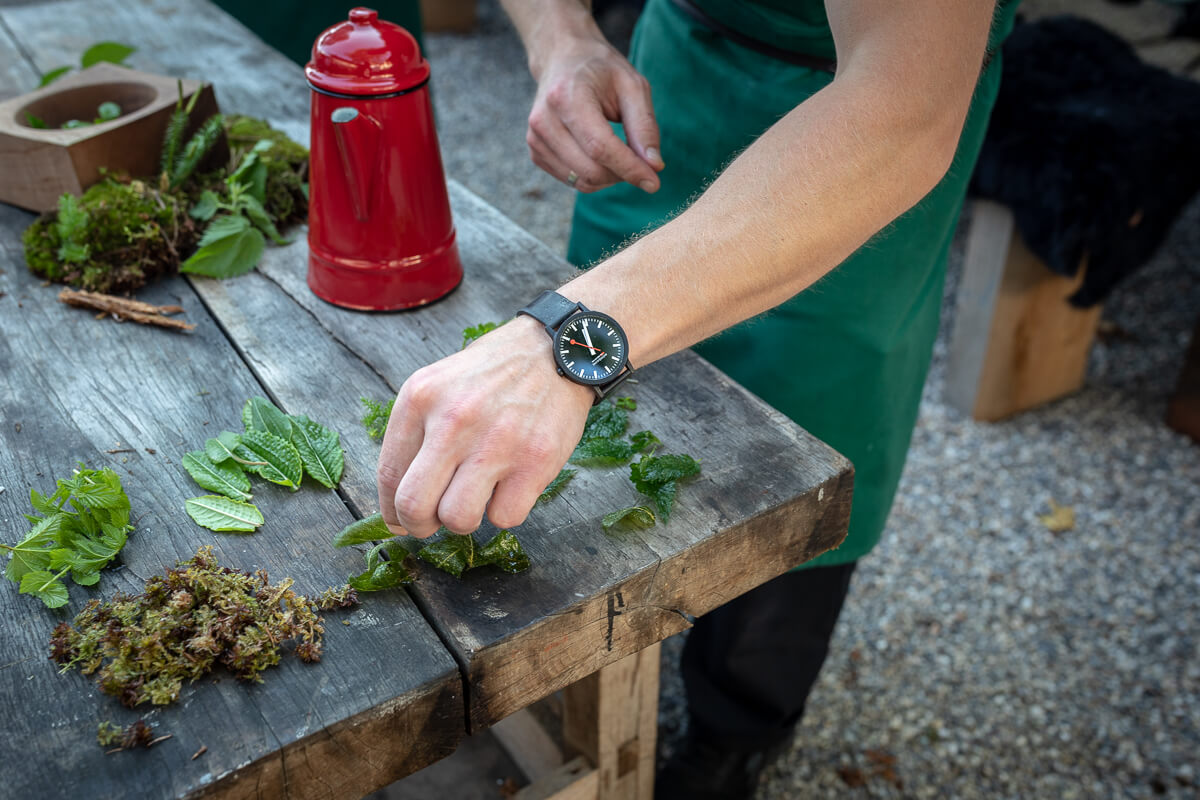
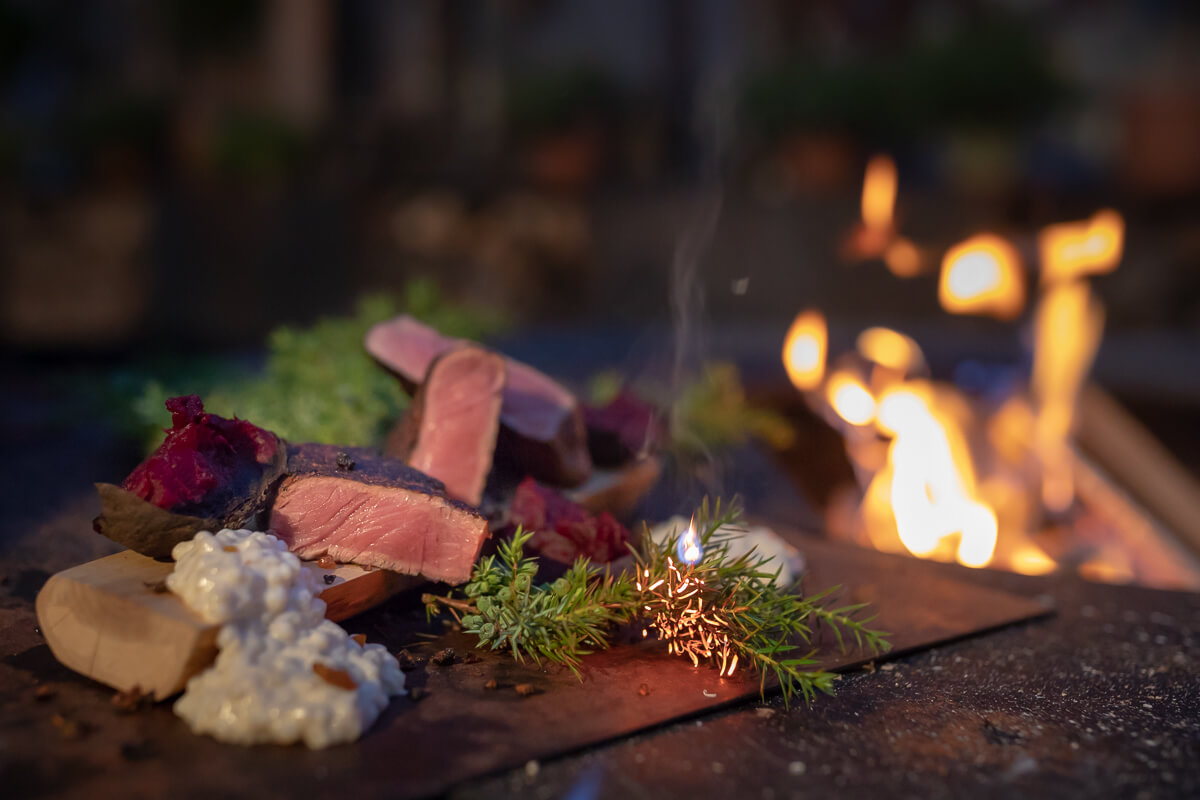
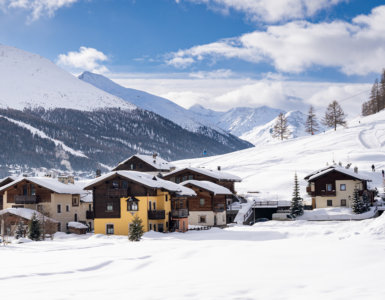
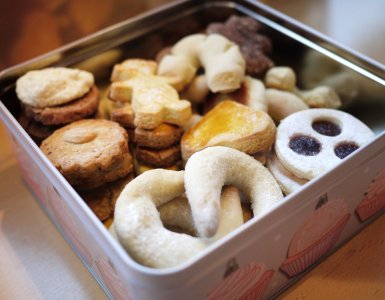
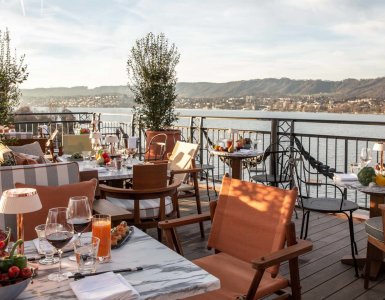

[…] brought his crew of sous-chefs to prepare our lunch. We have met Stefan before when he took us on a memorable hike through the moorlands of Entlebuch. Together with this amazing chef, we would gather moss, pine […]